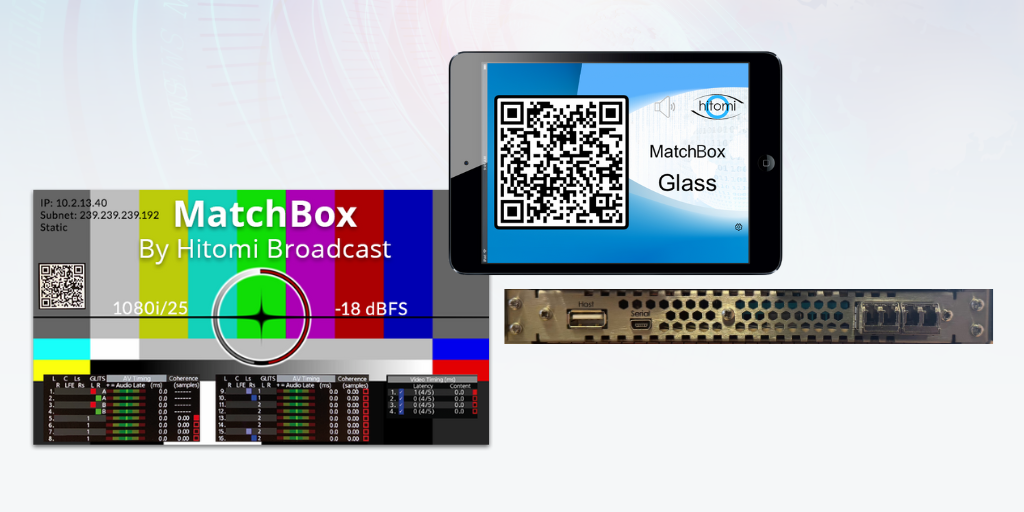
Hitomi Broadcast, the market leader in audio/video alignment and latency tools, has announced the official launch of SMPTE ST 2110 compatibility for its renowned MatchBox solution with live demonstrations at IBC2024 (Hall 10, Stand A42, RAI Amsterdam, 13 – 16 September). This enhancement allows MatchBox to seamlessly integrate into IP-based broadcast environments while maintaining its innovative lip-sync and latency measurement capabilities.
With the growing adoption of IP solutions in the broadcast industry, Hitomi has expanded the MatchBox features to support SMPTE ST 2110 systems. Customers can now enjoy the same MatchBox functionality they are accustomed to with SDI, but with the added flexibility of ST 2110 interfaces. The IP interfacing options are also available on Hitomi’s IdentBox product.
Russell Johnson, Director at Hitomi, emphasised the importance of this development: “As our customers navigate the challenges of migrating to IP solutions, we are committed to providing them with the tools they need to ensure seamless lip-sync and minimal latency. The integration of SMPTE ST 2110 compatibility into our MatchBox solution is a significant step in supporting our customers’ evolving requirements.”
Existing MatchBox customers can easily update their hardware to support ST 2110 by adding the new interface to spare slots in their xFrame. The xFrame can accommodate up to four MatchBox modules, allowing both SDI and ST 2110 interfaces to co-exist within the same frame and measure the latency differences between them. This flexibility enables a smooth transition to IP workflows while maintaining compatibility with existing SDI infrastructure.
At IBC2024, Hitomi will showcase its full range of solutions, including the MatchBox Glass app and a preview of its upcoming software analyser designed for high channel count productions. A new live demonstration will simulate a production from different countries operating a hybrid SDI/SMPTE ST 2110 setup. Visitors will be able to see how the updated MatchBox technology can now quickly and accurately measure any differences in latency between the two workflows.







